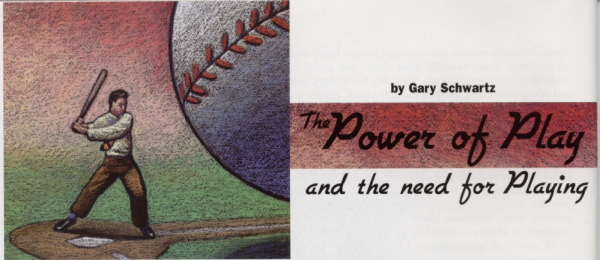The Language of Authority
Do this, don’t do that! Like this! Here’s how I want it! That’s better! That’s rotten! That’s not funny! Now that was FUNNY! That’s what I want! – spoken by a director at a recent improv workshop I attended.
If you teach or direct, you must be mindful of your role as leader and work to be a fellow player rather than the Authority, Know-it-all, etc.
There is great power in words. Choice of words can influence how relationships are determined. The use of some words to represent direction by improv teachers and coaches can be very destructive. Spolin was highly conscious of this vocabulary of authority and strove to counteract the unconscious use of such words often replacing “don’t” (a command from outside) with “avoid” (self-responsibility); “critique” (subjective opinion) with “evaluation” (objective reality).
A side-coach of “Help your fellow player play the game!” encourages mutual trust and attention by each individual to the group as a whole. It also breaks dependency on the teacher by the students and vice versa. These phrases are used consciously, to create a language of peerage and trust rather than a dependency on authority by “those who know.” i.e., teachers and directors or even senior members of a troupe of players. It is a very subtle point, but one of enormous consequence.



 The Trap
The Trap


